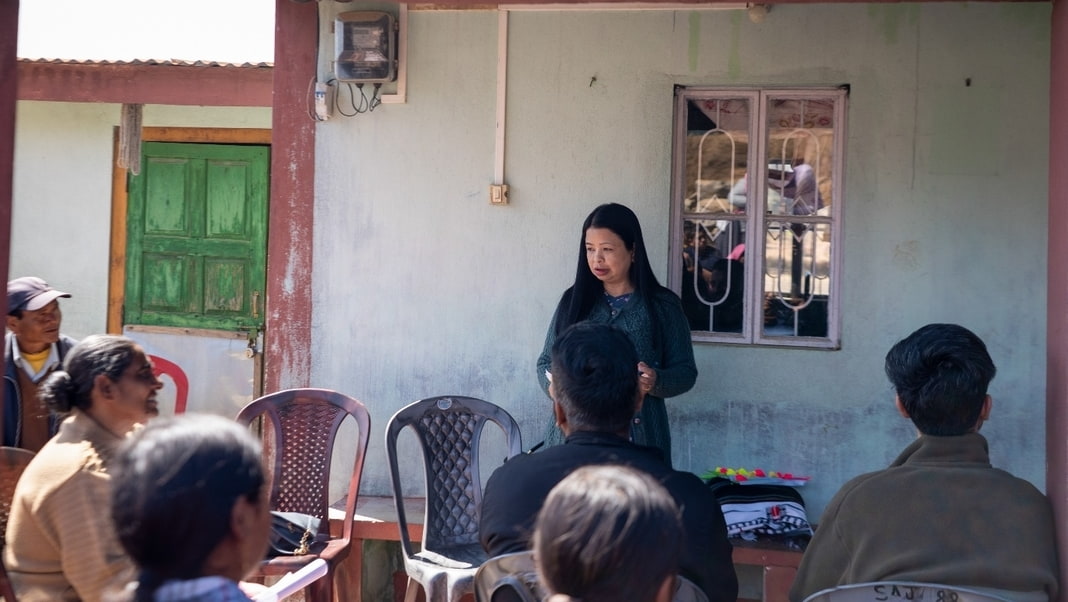Shillong, March 25: Gnanamma Healthcare Centre has taken a major step towards sustainable healthcare by ensuring uninterrupted vaccine storage and immunization services through solar power. The facility has transitioned to a near net-zero electricity health center by installing a 6.05 kW solar power plant and battery energy storage system, now supplying up to 100% of its electricity needs.
The green initiative was officially launched in the presence of Dr. Mehriba K. Sohliya, District Medical and Health Officer, West Khasi Hills, alongside hospital administration and representatives from WRI India.
With technical support from WRI India, the healthcare facility has integrated solar energy solutions, battery storage, and energy-efficient appliances, including indoor lighting, ceiling fans, floodlights, a water purifier, a water heater, and an autoclave. This transformation ensures the facility operates almost entirely on renewable energy, setting a new benchmark for sustainable healthcare in the region.
Sahaya Lilly, Administrator of Gnanamma Healthcare Centre, highlighted the significance of this transition, stating, “Before these installations, we relied solely on grid electricity without a backup generator, leading to service disruptions during power outages. The facility can now meet 100% of its electricity needs through the solar power plant and battery storage system. Additionally, the adoption of energy-efficient appliances will help us maintain lower electricity consumption,” she said.
Located in a remote area, Gnanamma Healthcare Centre is one of the few health facilities in the region providing immunization services. During power outages, ice-lined refrigerators (ILRs) play a critical role in maintaining vaccine storage temperatures between 2°C and 8°C.
Sohliya emphasized the importance of uninterrupted power supply, stating, “This solar power system ensures essential services such as emergency care, medical equipment operation, night-time services, and vaccine storage remain unaffected. With this initiative, ILRs provided under the National Health Mission’s cold chain program can now operate 24/7, ensuring consistent vaccine preservation.”
Rishikesh Mishra, Program Manager, Energy, WRI India, underscored the environmental and healthcare benefits of the initiative. “Through energy-efficient equipment and renewable energy, the health center will not only secure reliable electricity for quality care but also enhance resilience while reducing carbon emissions. This initiative can serve as a model for other health facilities in Meghalaya and beyond.”
The solar plant is expected to generate 5.48 Megawatt-hours (MWh) of electricity annually, potentially reducing annual carbon emissions by at least 1.99 metric tons while saving approximately INR 19,162 per year.
Given Meghalaya’s challenging terrain and vulnerability to natural disasters such as landslides and flooding, ensuring reliable electricity remains a priority. With the state’s electricity demand projected to grow at an annual rate of 2.9% between FY24 and FY32, solar power and battery storage present a viable solution for sustainable and resilient energy planning.
Also Read: Hub News Impact | District Admin orders inspection of food outlets in Tura
Also Watch
Find latest news from every corner of Northeast India at hubnetwork.in, your online source for breaking news, video coverage.
Also, Follow us on-
Twitter-twitter.com/nemediahub
Youtube channel- www.youtube.com/@NortheastMediaHub2020
Instagram- www.instagram.com/ne_media_hub
Download our app from playstore – Northeast Media Hub





